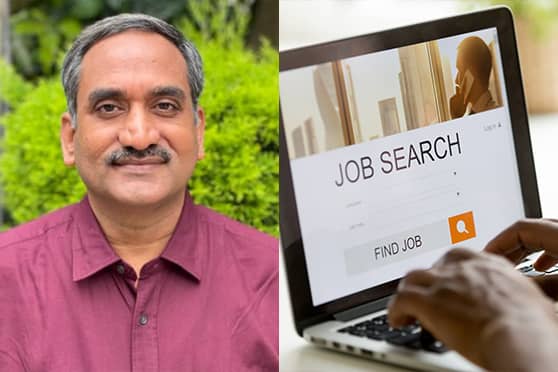Job is an environment of lifelong learning: Thirumala Arohi at Futurebound


Job demands have undergone drastic changes in the past few years with organisations looking for varied skill sets in prospective employees.
Thirumala Arohi, vice-president and head of education, training and assessment at Infosys, spoke to the students about ‘The Future of Work, Leadership and the Role of Education in it’ at Futurebound, a three-day pan-India youth conference organised by the AIESEC (Association Internationale des Étudiantsen Sciences Économiques et Commerciales) chapter. India’s biggest virtual youth conference is mentored by Infosys.
Here are excerpts from the session:
What drives changes in skills and at workplace
There are four factors. First, technological changes and innovations. Second, individual and societal changes and preferences, like work can at times be defined by government regulations. Third, talent and organisational changes where the organisation itself looks at re-innovating. When there is a mismatch between the talent required by them and the talent available, they reinvent newer models to get the work done. Fourth, customer and employee sophistication like today, you as a buyer are aware of what is happening in the industry and have certain expectations. It is the same with employees.
The stages of industrial revolution
The first industrial revolution brought about steam and hydropower while the second revolution was about mass production of electricity. The third revolution connected the world together. The fourth revolution is about the physical-cyber connection. This connection of man and machine is opening new avenues. Artificial Intelligence, Machine Learning are going to influence how work will be developed. With technology evolving rapidly, it is changing the expectations of employees in a workforce.
Changing structure of work, skills and career
Work was linear and almost singular but today it is collaborative. Multiple people contribute together, which is nicely collated and then delivered. Career had an affixed hierarchy. But today you will be asked to do different things. It's all about the shift from one function to another, maybe within the same workplace. There is no flat hierarchical structure but rather a development of a micro-career portfolio. The skills you learnt 15 years ago were good enough to sustain you for 10-15 years but now you need to learn every six to 10 months and acquire a combination of skills. Earlier, the workplace meant going to a physical office but today it is hybrid. It’s an anytime, anywhere, any device model. The organisations are trying to leverage the capabilities of the individual. Workplace today is not only a set of full-time employees but also allows gig talents.
Key observations in work structure due to tech-automation
There is an increased need for humans to have logical thinking, problem- solving skills, planning, social and emotional sensing and reasoning.
There is not much change in retrieving information. There is reduced need to collect data, process information or display physical capabilities.
There has been the introduction of newer activities involving man and machine working in convergence of technological and creative skills.
Machine Learning or Artificial Intelligence is not yet capable of adapting to new situations, solving novel problems, interpersonal communication or having an entrepreneurial mindset.
What did not change
What has not changed is your ability to articulate problems and your awareness of information. Second, in work it’s more important how well you work with each other, rather than working alone or taking it up as a personal ego.
The concept of open-source thinking is prevalent. If someone has done something, how can you work around it and leverage it is important. Fourth, the past is important. But how you take that hindsight to create an insight for today and make a foresight of tomorrow is relevant.
Getting future-ready
It is an environment of lifelong learning with skills like communication, diversity management, ethics, culture management, team work, managing change and self. Analytical thinking, adaptive mindset, social intelligence and engagement, media literacy, design thinking, global professionalism, collaboration skills, problem finding and solving skills and computational thinking are essential tools for the future.
Role of education
Grasping the concept of lifelong learning and micro -learning are important. How you learnt is not important but how you apply what you learnt is important. What is allowing individuals to grow today are the abilities beyond your hard skills.